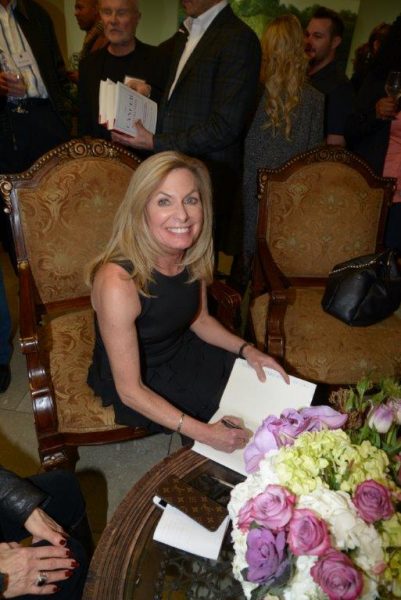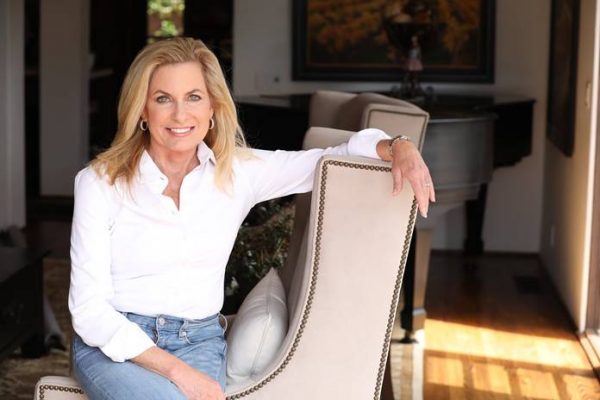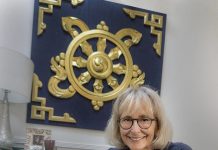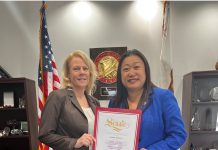Local doctor to give presentation demystifying the ‘Big C’ monster
By Rita Robinson, Special to the Independent

When Leigh Erin Connealy’s mother was five months pregnant with her in 1957, she started bleeding. She went to her doctor and was given DES, a synthetic estrogen believed then to prevent miscarriage.
According to the Centers for Disease Control, the drug did not prevent miscarriage, a fact established in 1953, but it was still being prescribed until 1971. That year, a study found DES caused a rare vaginal cancer in females exposed in their mother’s womb. The FDA advised physicians to stop prescribing the drug completely.
When Connealy was 16, her parents received a letter from the government saying their daughter was high-risk for cancer due to DES exposure and needed to be strictly monitored. That’s when Connealy, already scientifically inclined, started on her road to becoming a doctor and a single-minded medical detective.
“I didn’t want to treat cancer,” she said. “I wanted to prevent cancer, on myself first.”
Connealy underwent exams and biopsies regularly. She was having only one problem—one menstrual cycle a year. “It wasn’t like I felt normal,” she said. “I would go into long-term PMS, cramps, bloating and all these other symptoms. I would be in that for months.” At the University of Texas School of Public Health, her thesis examined the complications of DES exposure. “That’s when I understood how DES was affecting me,” she said.
As a leading integrative medical physician with two clinics in Irvine, forming what the clinics’ literature states is the largest integrative center in North America, Connealy has become a catalyst for change in the medical community. She is removing the doctor as the unquestioned authority and introducing the doctor as health facilitator for educating patients about self-care and self-healing.
“The first thing I say to a patient is, ‘Let’s do comprehensive blood work and all the nutritional testing,’” she said. “Then it’s going to be emotions first, eating second and energy-balancing third, the three E’s.”
Connealy will be speaking about her cancer revolution, which is also the name of her second book, at the Inside EdgeFoundation for Education breakfast meeting at 7 a.m. next Wednesday, Sept. 26, at the Pacific Club in Newport Beach.
“I’m good at what I do because I’ve been my own project,” she said. “In this day and age, you don’t have to guess. We have a lot of tests available that tell you exactly what’s going on with you. We know how to prevent illness, we know how to teach health, we know how to teach self-managed care. No one in our government esteems health. There are no advertisements saying how important self-care is. There’s nothing.”

We all have cancer, says Connealy. “In fact, right now, we all have, on average, roughly 75 million cancer cells in our bodies,” she wrote in the Townsend Letterfor alternative health care. “I don’t mean to frighten you, but that’s a simple fact of life.”
A small portion of the trillions of human cells are cancerous, she says, but in healthy people, the immune system prevents those aberrant circulating tumor cells from becoming something more serious. The key word, she says, is healthy.
People who eat poor-quality food, don’t exercise and don’t practice a healthy and happy emotional, mental and high-spirited lifestyle are putting themselves at risk for cancer or any other chronic health disorder, she said.
Connealy, who addresses a myriad of chronic health issues, including post-detox from addictions, infertility and complicated autoimmune cases such as Lyme Disease, considers cancer a chronic condition, not an acute disease. It becomes acute, she said, because we ignore our health until cancer starts screaming.
A cancer tumor can take 10 to 12 years to develop, she says, time enough to makes changes and ensure unencumbered well-being.
Medical research has stated that the next generation is expected to die at younger ages than their parents did, mostly due to obesity, or at least live unhealthier later years.
Another unsung contributor to poor health expectancy, says Connealy, is chemical and electrical toxicity. Cellphones are nearly an appendage with most people, especially younger people, she says. “We’re just getting sicker by the day. We need to teach ourselves how to be healthy so we’re not a burden to society, we’re not a burden to our families and we’re not a burden to ourselves. And so we don’t maim ourselves. We all need to focus on how to get and stay healthy by forming communities of healing.”
At a medical conference early in her career, Connealy met a man who cured himself of osteosarcoma, cancer of the bone and muscle. “His doctor advised amputation because that was the treatment at the time. He spent the next 11 years learning how to save his leg and cure himself of cancer. He told me, ‘I’m going to teach you how to prevent cancer,’ and I said, ‘I’m ready.’”
The World Health Organizationdefines health as “a state of complete physical, mental and social well-being and not merely the absence of disease or infirmity,” adding that “the enjoyment of the highest attainable standard of health is one of the fundamental rights of every human being without distinction of race, religion, political belief, economic or social condition.”
With that in mind, Connealy comments, “I have never ever met a cancer patient whose former doctors ever talked about eating. Now how is that possible in 2018?” Most food, she says, is dead food and dead food causes disease. “We’re still in the dark ages,” she said. “These are the injustices that are taking place against humanity.”




